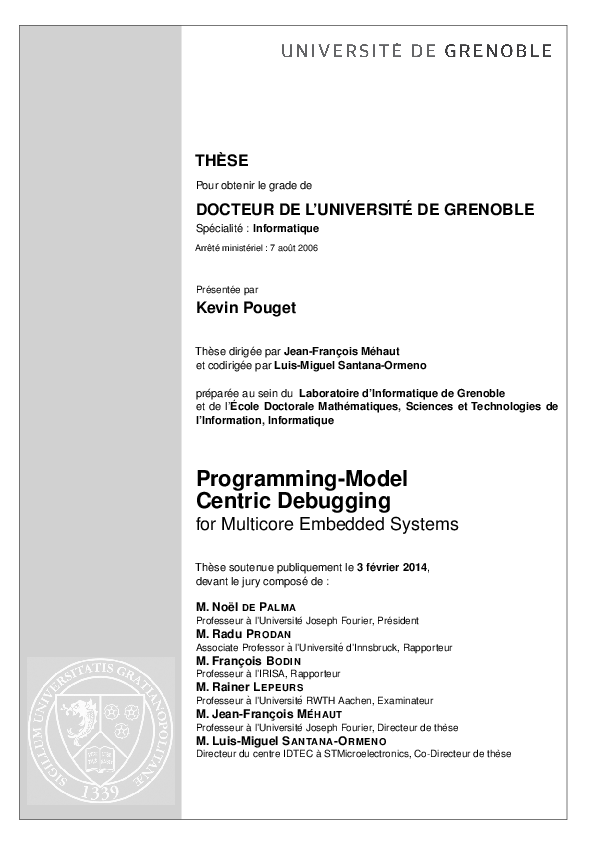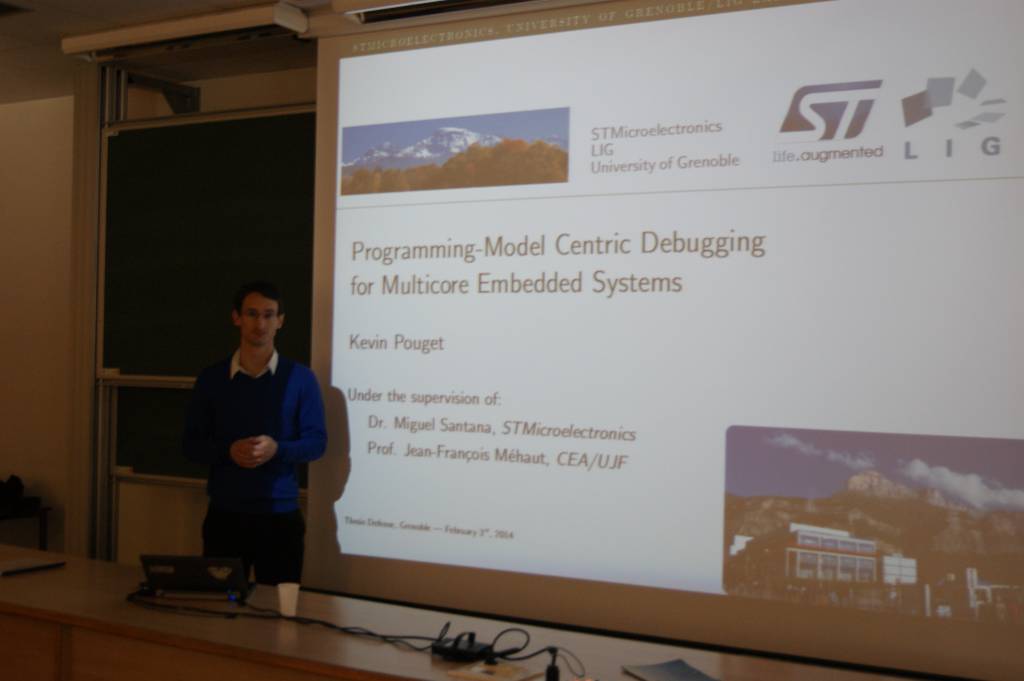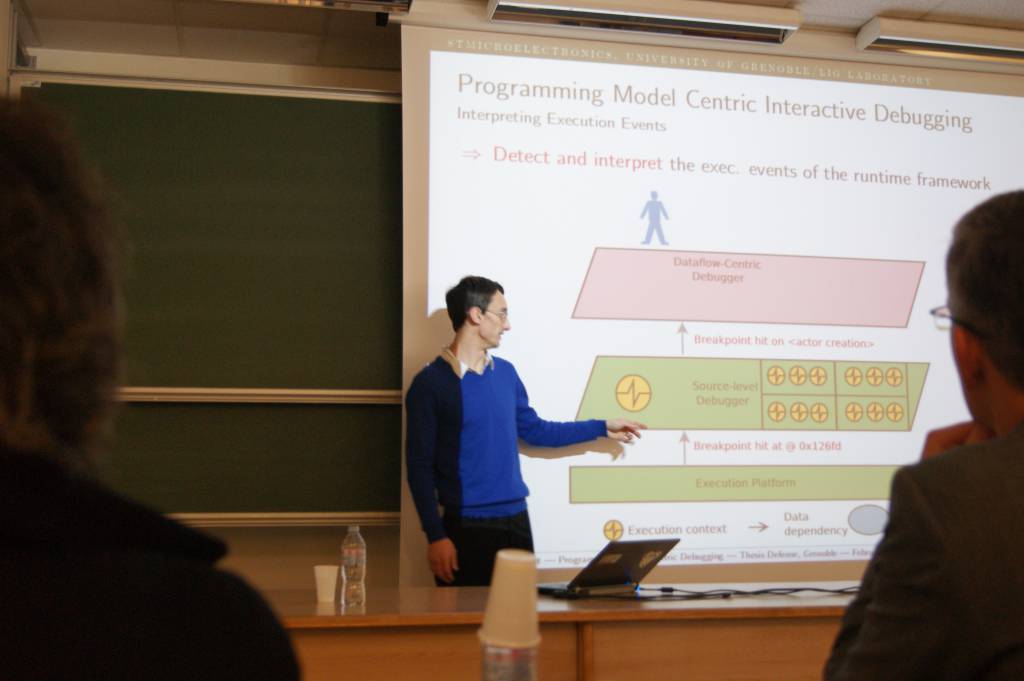PhD thesis defended and accepted
2014-02-03 in Paper, PresentationToday, my PhD thesis on model-centric debugging was accepted! I’m now Doctor of the University of Grenoble, es Informatique! It is entitled:
Programming-Model Centric Debugging for Multicore Embedded Systems


Programming-Model Centric Debugging for multicore embedded systems
In this thesis, we propose to study interactive debugging of applications running on embedded systems Multi-Processor System on Chip (MPSoC). A literature study showed that nowadays, the design and development of these applications rely more and more on programming models and development frameworks. These environments gather established algorithmic and programming good-practices, and hence speed up the development process of applications running on MPSoC processors. However, sound programming models are not always sufficient to reach or approach error-free codes, especially in the case of dynamic programming, where they offer little to no help.
Our contribution to lighten these challenges consists in a novel approach for interactive debugging, named Programming Model-Centric Debugging, as well as a prototype debugger implementation. Model-centric debugging raises interactive debugging to the level of programming models, by capturing and interpreting events generated during the application execution (e.g. through breakpointed API function calls). We illustrate how we applied this approach to three different programming models, software components, dataflow and kernel-based programming. Then, we detail how we developed a debugger prototype based on GDB, for STMicroelectronics’s STHORM programming environment. STHORM development toolkit provides supportive environments for component, dataflow and kernel-based programming. We also demonstrate how to tackle software debugging with our debugger prototype through four case studies: an augmented reality feature tacker built with components, a dataflow implementation of the H.264 video decoding standard and two scientific HPC computing applications.


